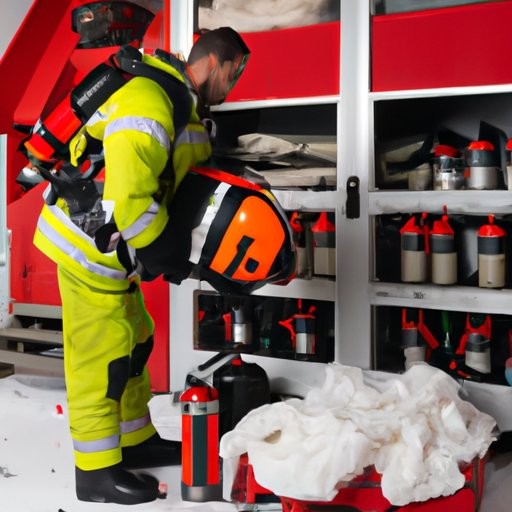Why Are NJ Firefighters Suing Over Foam Chemicals and What It Means for You
Firefighters in New Jersey are engaged in critical legal battles over Aqueous Film Forming Foam (AFFF), a firefighting agent linked to health risks. This foam contains PFAS (per- and polyfluoroalkyl substances), which have raised serious health concerns. These lawsuits highlight the dangers faced by firefighters and have broader implications for public health and safety in New Jersey and beyond.

What Is AFFF and Why Is It Controversial?
Understanding AFFF and Its Use
Aqueous Film Forming Foam (AFFF) is used to extinguish fires involving flammable liquids like gasoline or oil. It's widely used in military bases, airports, and fire departments due to its effectiveness. However, AFFF contains PFAS, chemicals that persist in the environment and human body, often referred to as "forever chemicals."
The controversy stems from the health risks associated with PFAS exposure. Studies have linked these chemicals to cancer, liver damage, immune system impacts, and reproductive issues. PFAS can contaminate soil and water, leading to widespread exposure. As of May 2025, New Jersey law continues to address these challenges, reflecting ongoing concerns.
Legal Actions Taken by New Jersey Firefighters
Firefighters in New Jersey have filed lawsuits against major chemical companies like 3M, DuPont, and Chemours. They allege these companies knowingly sold AFFF with harmful PFAS without adequate warnings. The lawsuits seek compensation for medical expenses, lost wages, and other damages related to PFAS exposure.
These legal actions also aim to hold manufacturers accountable for environmental contamination caused by AFFF. Sites like fire stations and airports where AFFF is used often have significant PFAS contamination, posing risks to nearby communities and ecosystems. These lawsuits are part of a broader effort to address PFAS's impact on public health and the environment.
How Does This Affect You?
Potential Health Risks for the Public
The lawsuits underscore the health risks of PFAS exposure. While firefighters face direct exposure, the general public is also at risk. PFAS can contaminate drinking water, leading to widespread exposure. In areas near military bases or airports, residents may face increased health risks. The Environmental Protection Agency (EPA) is working to establish regulatory standards for PFAS in drinking water to protect public health.
Environmental and Regulatory Implications
The lawsuits highlight the environmental impact of PFAS contamination. These chemicals can persist for decades, affecting soil, water, and wildlife. Legal actions by New Jersey firefighters may lead to stricter regulations and efforts to clean up contaminated sites. Both state and federal regulatory developments are crucial in tackling the PFAS crisis, aiming to ensure safer communities in New Jersey and across the United States.
FAQs About NJ Firefighters Suing Over Foam Chemicals
What Are PFAS Chemicals?
PFAS (per- and polyfluoroalkyl substances) are man-made chemicals used in various products for their water and grease-resistant properties. They are known for their persistence in the environment and potential health risks.
Why Are Firefighters Suing Over AFFF?
Firefighters are suing over AFFF because it contains PFAS, which have been linked to serious health issues. The lawsuits claim that manufacturers failed to warn users about the risks associated with these chemicals.
How Can PFAS Affect Public Health?
PFAS exposure has been associated with health problems, including cancer, liver damage, and immune system impacts. The chemicals can contaminate drinking water, leading to widespread exposure among communities.
What Is Being Done to Address PFAS Contamination?
Efforts to address PFAS contamination include regulatory actions by the EPA and state agencies, as well as legal actions by affected individuals and communities. These efforts aim to establish safety standards and remediate contaminated sites.
How Can I Protect Myself from PFAS Exposure?
To protect yourself from PFAS exposure, stay informed about local water quality reports, use water filters certified to remove PFAS, and support regulatory efforts to address contamination. Awareness and advocacy are key to ensuring safer communities.
Take Action for Safer Communities
The legal actions by New Jersey firefighters against chemical manufacturers underscore the urgent need to address PFAS risks in firefighting foam and beyond. As these lawsuits progress, they remind us of the importance of regulatory oversight and public awareness in protecting health and the environment. Stay informed, support efforts for stricter regulations, and advocate for cleaning up contaminated sites to protect yourself and your community in New Jersey and across the United States.


